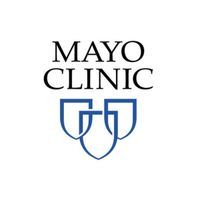
Technological Advancements Improving, Expanding Capabilities of Antibody Testing: Sean Pittock, MD

The director of the Mayo Clinic Center for Multiple Sclerosis and Autoimmune Neurology discussed the technological capabilities the center has, including the improved use of neural antibody testing. [WATCH TIME: 6 minutes]
WATCH TIME: 6 minutes
"Using the living cell, we have optimized the sensitivity and specificity for a water channel assay to 100%. Nobody else has that. We then use flow cytometry and a variety of different color agents to allow us to detect whether or not a patient’s antibodies are binding to those living cells."
Given the limitations of neural antibody testing, the laboratory also evaluates standard analytical performance characteristics such as precision, accuracy, reportable range, reference range, and analytical specificity, and, notably, incorporates a rigorous evaluation of diverse samples. There are several ongoing projects within the MS center, notes
Newsletter
Keep your finger on the pulse of neurology—subscribe to NeurologyLive for expert interviews, new data, and breakthrough treatment updates.










